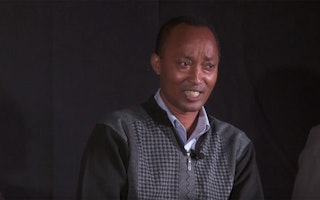
Rwandan president Paul Kagame has emerged as perhaps the most enigmatic and controversial figure in Africa. Is he the principled leader of “one of the safest and most orderly countries in Africa” (as one journalist put it), the man who calmly rebuilt Rwanda following one of the worst episodes of mass killing in the modern era? Or is he the primary architect of a brutal dictatorship, himself implicated in scores of serious human rights abuses, including crimes against humanity and genocide?
At this Open Society Foundations event, panelists examine the image of Kagame that has been created in the media—and in the popular imagination—and how that image contrasts with reality. They’ll also address such vexing questions as: How does one depict a legacy as complex and contradictory as Kagame’s? How does a society recover from genocide, and how do we assess the benefits and drawbacks of the suppression of discussion of ethnic identity? And Is it ever permissible to take liberties with the factual record in the service of a just cause?
Speakers
- Rona Peligal, deputy director of the Africa Division of Human Rights Watch
- Stephen W. Smith, professor of African studies and cultural anthropology at Duke University
- Theogene Rudasingwa, former secretary general of the Rwandan Patriotic Front and Rwandan Ambassador to the United States
- Howard French, Open Society Fellow and veteran New York Times correspondent
